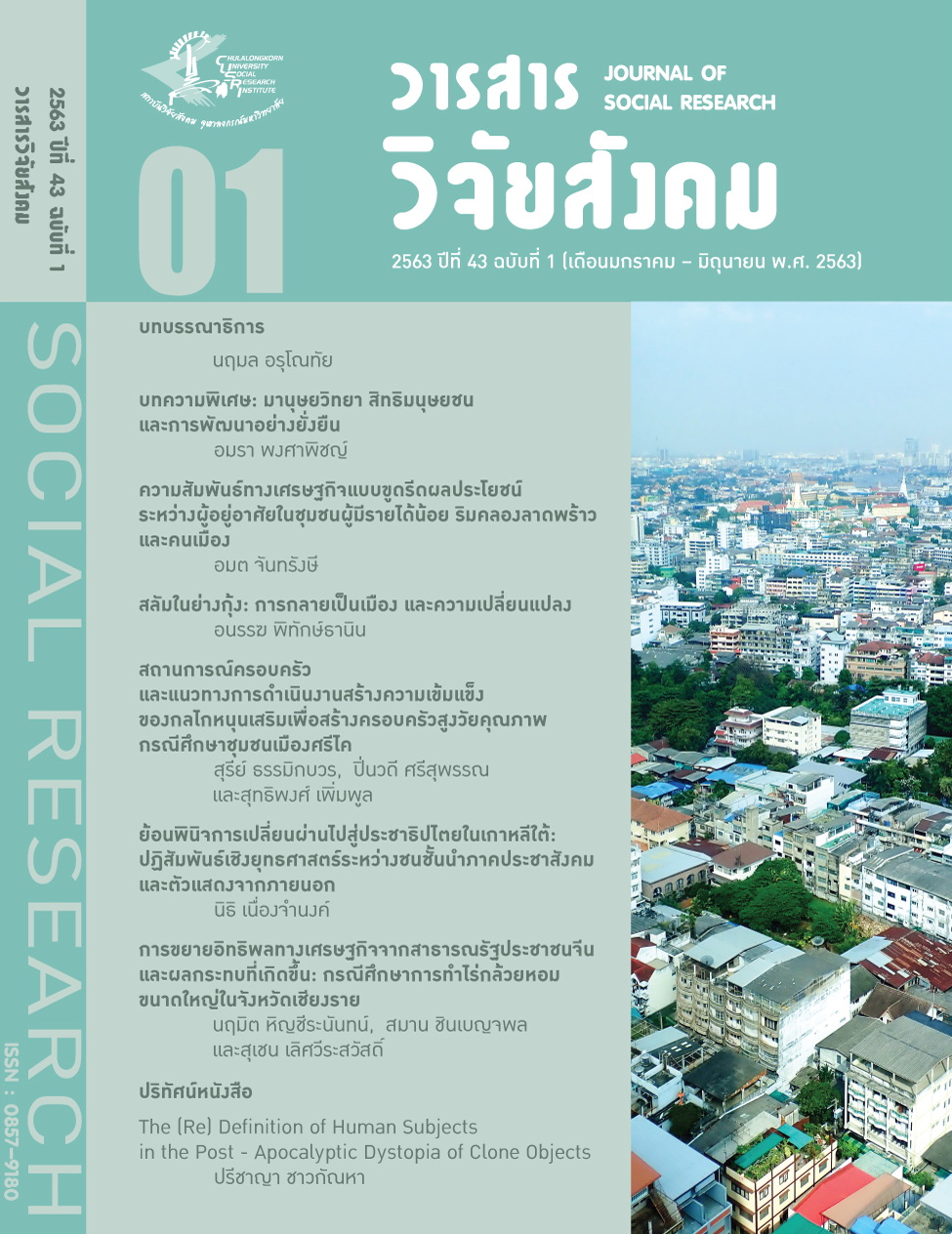The (Re) Definition of Human Subjects in the Post-Apocalyptic Dystopia of Clone Object
Main Article Content
บทคัดย่อ
“I believe that encounters with lively matter can chasten my fantasies of human mastery, highlight the common materiality of all that is; expose a wider distribution of agency, and reshape the self and its interests.” Jane Bennett, Vibrant Matter: A Political Ecology of Things (2010).
In the pre-modern realm, the notion of apocalypse was associated with religious mythology. Apocalypse was an ultimate battle between vice and virtue, which was believed to culminate in the final fate of humanity, Final Judgement. Pre-modern apocalypse was, hence, a unitary narrative that recognizes only the authority of God over human beings. Since modernity took shape in the seventeenth century, secular subjectivity bred multiple notions of apocalypse which entails “the perception of human experience and meaning within the flow of history” (Herzberger, 1991: 247). Ihab Hassan defines (modern) apocalypse as an idea that “involves a sense of outrage at the void of life as well as an expression of the fragmented chaos of human existence” (page 248). There is thus an afterwards to modern apocalypse which anticipates the successive time after
its happening. In other words, modern apocalypse is indeed a post-apocalypse that explores liminality, an erratic and ambiguous state of societal transitions through which the meaning of human experiences is explored, rather than the prospect of finality.
Article Details
1) บทความนี้เป็นลิขสิทธิ์ของสถาบันวิจัยสังคม จุฬาลงกรณ์มหาวิทยาลัย แต่ความคิดเห็นและเนื้อหาเป็นของผู้แต่ง
2) ทัศนะและความคิดเห็นที่ปรากฏในบทความในวารสารวิจัยสังคมและปริทัศน์ สถาบันวิจัยสังคม จุฬาลงกรณ์มหาวิทยาลัย ถือเป็นความรับผิดชอบของผู้แต่งบทความนั้น และไม่ถือเป็นทัศนะและความรับผิดชอบของกองบรรณาธิการวารสารวิจัยสังคมและปริทัศน์ สถาบันวิจัยสังคม จุฬาลงกรณ์มหาวิทยาลัย กองบรรณาธิการไม่สงวนสิทธิ์ในการคัดลอก แต่ให้ระบุถึงการอ้างอิง


